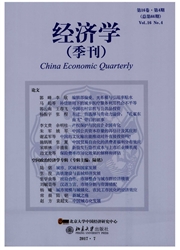

 中文摘要:
中文摘要:
本文拓展了RodriguezandSbuelz(2006)模型,引入稳健性偏好来研究中国股市的惯性投资策略和对冲投资策略。稳健性投资者对惯性投资策略反应不足,部分执行反转投资策略,从而印证了实证研究所发现的中国股市在中短期内惯性效应夹杂着反转效应的情况;稳健性投资者对对冲投资策略反应过度,并且随着投资周期的变长,其与一般投资者的对冲投资策略差异拉大;风险规避系数大和存在稳健性偏好的投资者能够把投资策略控制在合理的区间内。
 英文摘要:
英文摘要:
This paper combines the model of Rodriguez and Sbuelz (2006) with robust- ness to investigate momentum strategies and hedge strategies in Chinese stock market. Inves- tors with robustness react pessimistic to the momentum strategies and partly carry out cont- rarian strategies simultaneously. This conforms to former empirical researches, which found the combination between momentum strategies and contrarian strategies in the short-medium investment p|anning~ Investors with robustness overreact on the inter-temporal hedging strat- egies. The difference between robust and ordinary investors on hedge strategies enlarges as investment horizon prolonged~ Investors with high risk averse and robustness can control their investment on a reasonable interval.
 同期刊论文项目
同期刊论文项目
 同项目期刊论文
同项目期刊论文
 期刊信息
期刊信息
